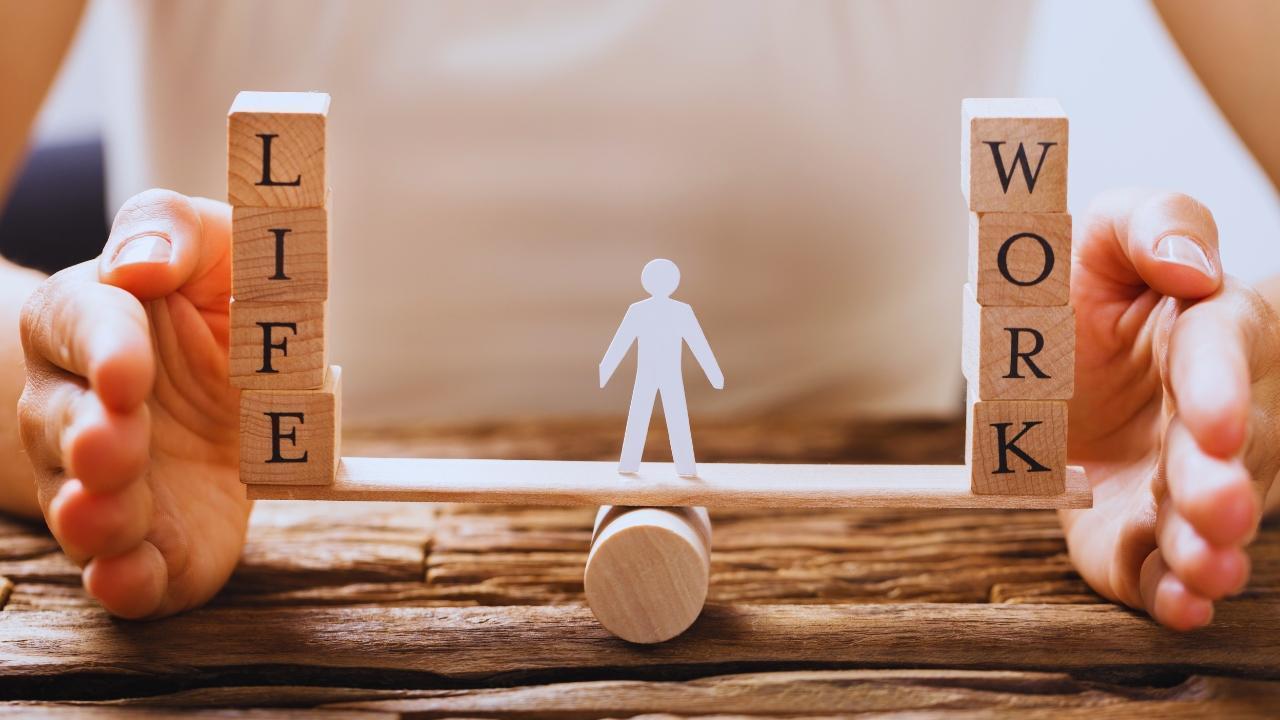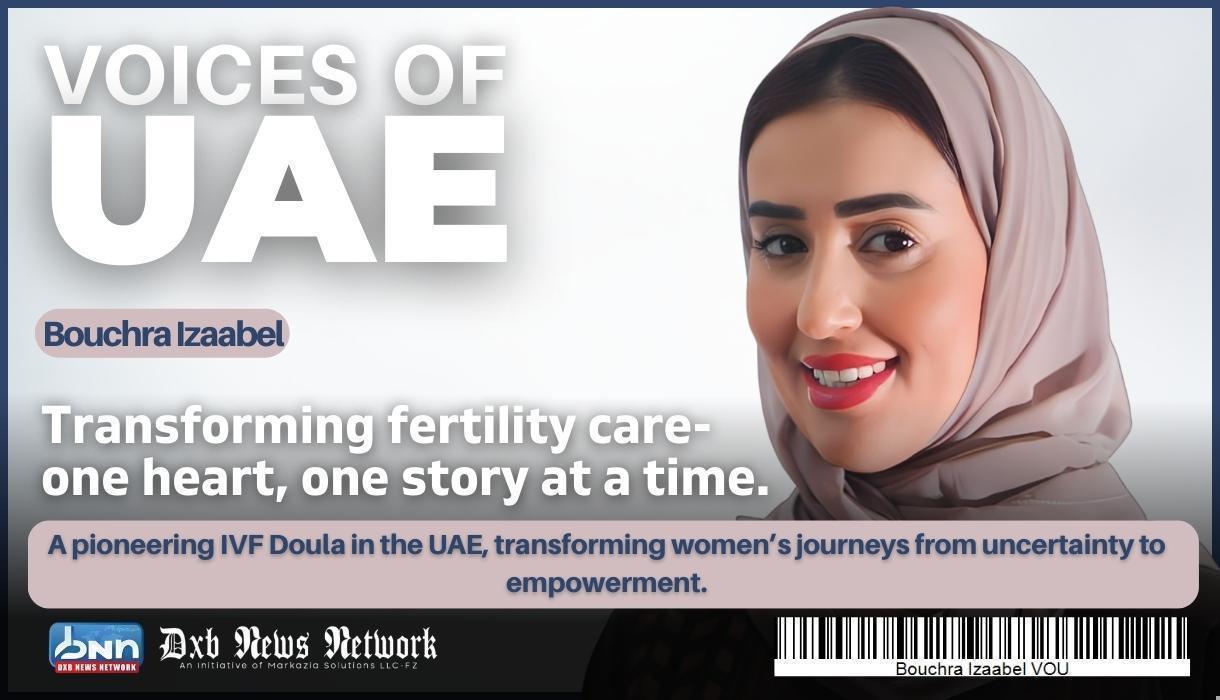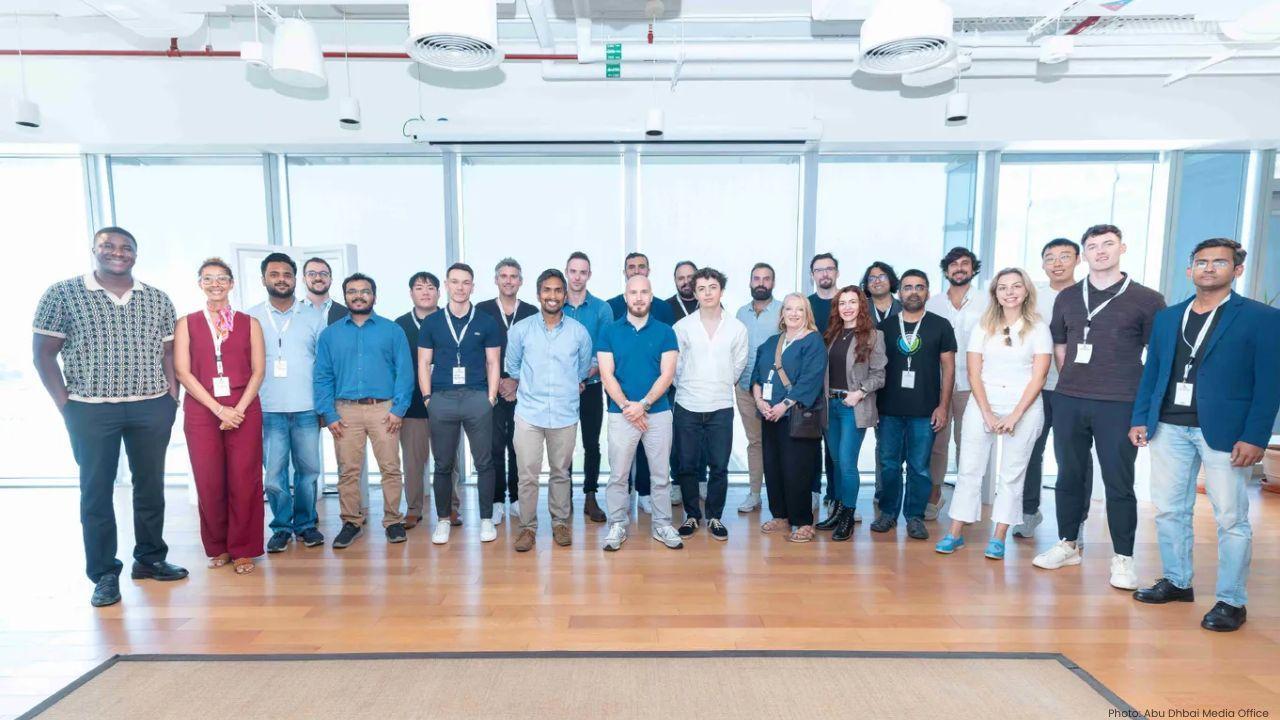
Post by : Anish
Over the past few years, the way we work has changed dramatically. The pandemic years forced people around the world to work from home, and since then, employees have started questioning the traditional “9-to-5 grind.” In 2025, there’s a growing global trend of people taking back control over their work schedules, mental well-being, and personal lives. Work-life balance isn’t just a corporate buzzword anymore—it’s becoming a basic demand of modern living.
People are realizing that working longer hours doesn’t necessarily lead to more success or happiness. In fact, it often leads to burnout, health problems, and lower productivity. This global shift is encouraging countries, companies, and individuals to make work more flexible, healthier, and more balanced. Here’s how this transformation is happening worldwide.
One of the most talked-about changes in work culture is the adoption of the four-day workweek. Countries like Iceland, New Zealand, and parts of Europe have already experimented with this system. The results have been overwhelmingly positive—employees are happier, healthier, and more productive.
In the United Kingdom, several companies officially moved to a four-day workweek after trials showed better employee performance and reduced sick days. Japan, known for its stressful work culture, is now encouraging companies to give employees extra days off to improve well-being.
In 2025, more companies globally are joining this trend. Instead of reducing pay, companies are choosing to cut workdays and focus on productivity. Employees enjoy a better balance between work and family life, hobbies, or personal growth.
Another big change is the widespread acceptance of flexible working hours. The traditional 9-to-5 schedule doesn’t suit everyone—parents, caregivers, students, and people with health conditions need flexible timing.
Companies in the US, Europe, and Asia are now letting employees choose their work hours. Some prefer early mornings, others are more productive in the evenings. The result? Less stress, fewer absences, and higher job satisfaction.
In countries like Germany and the Netherlands, flexible work policies are protected by law. Employees can request flexible schedules, and employers are required to consider them seriously. This movement is helping millions enjoy more time for family, exercise, and personal activities.
The pandemic introduced remote work, and it has stayed for good. In 2025, remote and hybrid work options are common in many industries. People now have the freedom to work from home, cafes, or even while travelling.
Countries like Estonia and Portugal have introduced digital nomad visas to attract remote workers. Dubai offers a remote work program allowing people to live in the city while working for foreign companies.
Remote work reduces commuting stress, saves money, and improves productivity for many people. Employees enjoy more time with family and healthier lifestyles without the daily office rush.
A popular new concept is the workation—working while travelling. People now take extended trips, working during the day and exploring during evenings or weekends. Coastal towns, hill stations, and countryside resorts are transforming into workation hubs.
Thailand, Bali, and Dubai have embraced this idea, offering long-stay packages and co-working spaces. This trend helps people avoid burnout, experience new cultures, and balance work with relaxation.
Companies supporting workations often see improved morale and creativity among employees. Many people believe this blended lifestyle keeps work exciting and refreshing.
In the past, taking a sick day was limited to physical illnesses. Now, more companies understand the importance of mental health. Mental health days are becoming part of paid leave policies.
Employees are encouraged to take a day off when feeling mentally exhausted, stressed, or anxious. Countries like Canada and Australia have implemented policies promoting mental wellness at work.
In India, more startups and corporate companies are offering wellness leave, in addition to casual and sick leaves. This step helps reduce burnout and promotes a healthier work environment.
For people who don’t want to work full-time but still want career growth, job sharing is becoming a viable option. Two employees share one job role, splitting responsibilities and working part-time hours.
This concept allows people to maintain a professional identity while enjoying more free time. It’s especially helpful for parents, students, and those pursuing side businesses or personal interests.
Countries like Sweden and the UK have seen a rise in job-sharing roles in 2025. Companies benefit too—they retain skilled workers who might otherwise leave the workforce.
In several European countries, “Right to Disconnect” laws are now in place. Employers are not allowed to contact employees after work hours unless it’s urgent.
France, Germany, and Italy have formalized these laws, while other countries are introducing policies to encourage healthier work boundaries. In India and the US, some companies now avoid scheduling calls or messages outside of office hours.
This change helps employees enjoy real personal time without work interruptions, leading to healthier minds and better relationships.
Career breaks, once considered a career killer, are now gaining acceptance. Employees can take planned career breaks for personal reasons, travel, education, or caregiving without fearing job loss.
In 2025, more global companies are offering career break programs, allowing employees to return after a few months or even a year. This flexibility supports mental well-being, skill development, and overall happiness.
Countries like Australia and the UK have structured career sabbatical policies, and companies in Asia are slowly adopting similar programs.
In places where four-day workweeks are not possible, shorter daily working hours are being tested. Companies have found that employees often complete tasks faster when they work fewer hours with better focus.
In Finland and Norway, six-hour workdays have shown positive effects on both productivity and job satisfaction. Startups in India and Southeast Asia are experimenting with reduced work hours to attract young, talented workers.
Shorter days allow people to enjoy more of their day, leading to better health and stronger family ties.
One major positive outcome of work-life balance reforms is the revival of personal passions and hobbies. Employees are reclaiming time to focus on fitness, arts, travel, and learning new skills.
People are taking evening classes, learning music, starting small businesses, or simply spending quality time with family. Many report higher life satisfaction when their work schedule allows space for personal growth.
This shift is also changing society’s view of success—not just measured by salary, but by overall life happiness and fulfillment.
Around the world, both employees and employers are realizing that healthier work-life balance leads to better outcomes for everyone. Companies enjoy higher retention rates, lower burnout, and more creative teams. Employees benefit from reduced stress, better health, and more satisfying personal lives.
From flexible schedules to workations, mental health leave to career breaks, the world of work in 2025 is evolving rapidly in favor of balance. This global movement signals a long-term change in how societies view work, life, and happiness.
This article is for informational purposes only, based on general workplace trends in 2025. Work policies may vary by country and company. Readers are advised to check local labor regulations and consult professionals for personal employment advice.

Eid e Milad 2025 Honoring the Birth and Teachings of Prophet Muhammad
Discover Eid e Milad 2025 celebrating Prophet Muhammad s birth with prayers charity peace and te

Baaghi 4 Tiger Shroff Returns with Thrilling Action and High Octane Drama
Explore Baaghi 4 Tiger Shroff s thrilling action stunning stunts gripping story and why this Bol

Voices of UAE: Bouchra Izaabel-Transforming Fertility Care, One Heart and One Story at a Time
Transforming Fertility Care, One Heart and One Story at a Time

Nvidia Faces Uncertainty in China Amid US-China Tech Tensions
Nvidia navigates US-China tech tensions as China remains key market. Demand for advanced chips rises

Wednesday Season 3 Release Date Plot Cast and What Fans Can Expect
Discover Wednesday Season 3 release date cast plot twists and what fans can expect from the thri

Hub71 Welcomes 26 AI Startups in Largest Cohort Yet
Hub71 launches its 17th cohort with 26 AI startups from 12 countries, raising AED 818M, boosting Abu

Deepika Padukone Joins LVMH Jury as First Indian Member
Deepika Padukone makes history as the first Indian juror at the 2025 LVMH Prize in Paris, joining fa

Voices of UAE: Bouchra Izaabel-Transforming Fertility Care, One Heart and One Story at a Time
Transforming Fertility Care, One Heart and One Story at a Time

Pakistan Defeat UAE by 31 Runs in T20I Tri-Series Clash
Pakistan beat UAE by 31 runs in Sharjah T20I Tri-Series. Saim Ayub hit 69, Hasan Nawaz 56, while Has

Vice President’s Jiu-Jitsu Cup Ends with UAE Clubs Triumph
Sharjah Al Ain Al Jazira and Baniyas clubs shine as champions in the Vice President’s Jiu-Jitsu Cup

Liverpool beat Arsenal City fall to Brighton in EPL drama
Liverpool edge Arsenal with Szoboszlai’s stunning free-kick, while Manchester City suffer second str

Tawfiq wins UAE President’s Cup Arabian Horse Race in Russia
Tawfiq claimed victory at the UAE President’s Cup in Kazan, Russia, thrilling 20,000 fans with a dra

GCC Chief Urges Stronger Push on Global Free Trade Talks
GCC Secretary-General Jasem Albudaiwi pressed negotiators to intensify efforts on free trade pacts b

UAE and India Strengthen Trade Ties with Mumbai Business Talks
UAE Minister of Foreign Trade Dr. Thani Al Zeyoudi met Indian leaders in Mumbai to expand CEPA benef

UAE announces September fuel prices for petrol and diesel
The UAE Fuel Price Committee set September 2024 rates: Super 98 at AED 2.90, Special 95 and Diesel a